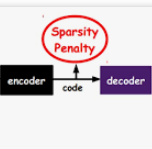In recent years, kernel-based sparse coding (K-SRC) has received particular attention due to its efficient representation of nonlinear data structures in the feature space. Nevertheless, the existing K-SRC methods suffer from the lack of consistency between their training and test optimization frameworks. In this work, we propose a novel confident K-SRC and dictionary learning algorithm (CKSC) which focuses on the discriminative reconstruction of the data based on its representation in the kernel space. CKSC focuses on reconstructing each data sample via weighted contributions which are confident in its corresponding class of data. We employ novel discriminative terms to apply this scheme to both training and test frameworks in our algorithm. This specific design increases the consistency of these optimization frameworks and improves the discriminative performance in the recall phase. In addition, CKSC directly employs the supervised information in its dictionary learning framework to enhance the discriminative structure of the dictionary. For empirical evaluations, we implement our CKSC algorithm on multivariate time-series benchmarks such as DynTex++ and UTKinect. Our claims regarding the superior performance of the proposed algorithm are justified throughout comparing its classification results to the state-of-the-art K-SRC algorithms.
翻译:近年来,内核稀疏编码(K-SRC)因其在特性空间的非线性数据结构的高效代表性而得到特别关注;然而,现有的K-SRC方法因其培训和测试优化框架之间缺乏一致性而受到影响;在这项工作中,我们提议了一种新的自信的K-SRC和字典学习算法(CKSC)和字典学习算法(CKSC),其重点是根据其在内核空间中的代表性对数据进行有区别地重建数据。CKSC侧重于通过对其相应数据类别有信心的加权贡献来重建每个数据样本。我们使用新的歧视性术语将这一计划应用于我们的算法中的培训和测试框架。这种具体设计提高了这些优化框架的一致性,并改进了召回阶段的歧视性表现。此外,CKSC直接在其字典学习框架中使用受监督的信息,以加强字典的歧视性结构。关于实证评估,我们用我们的CSC算法在多变时间序列基准,例如DynTex++和UTKinect上我们关于拟议算法的优性表现的说法在比较其分类结果与状态时是有道理的。



